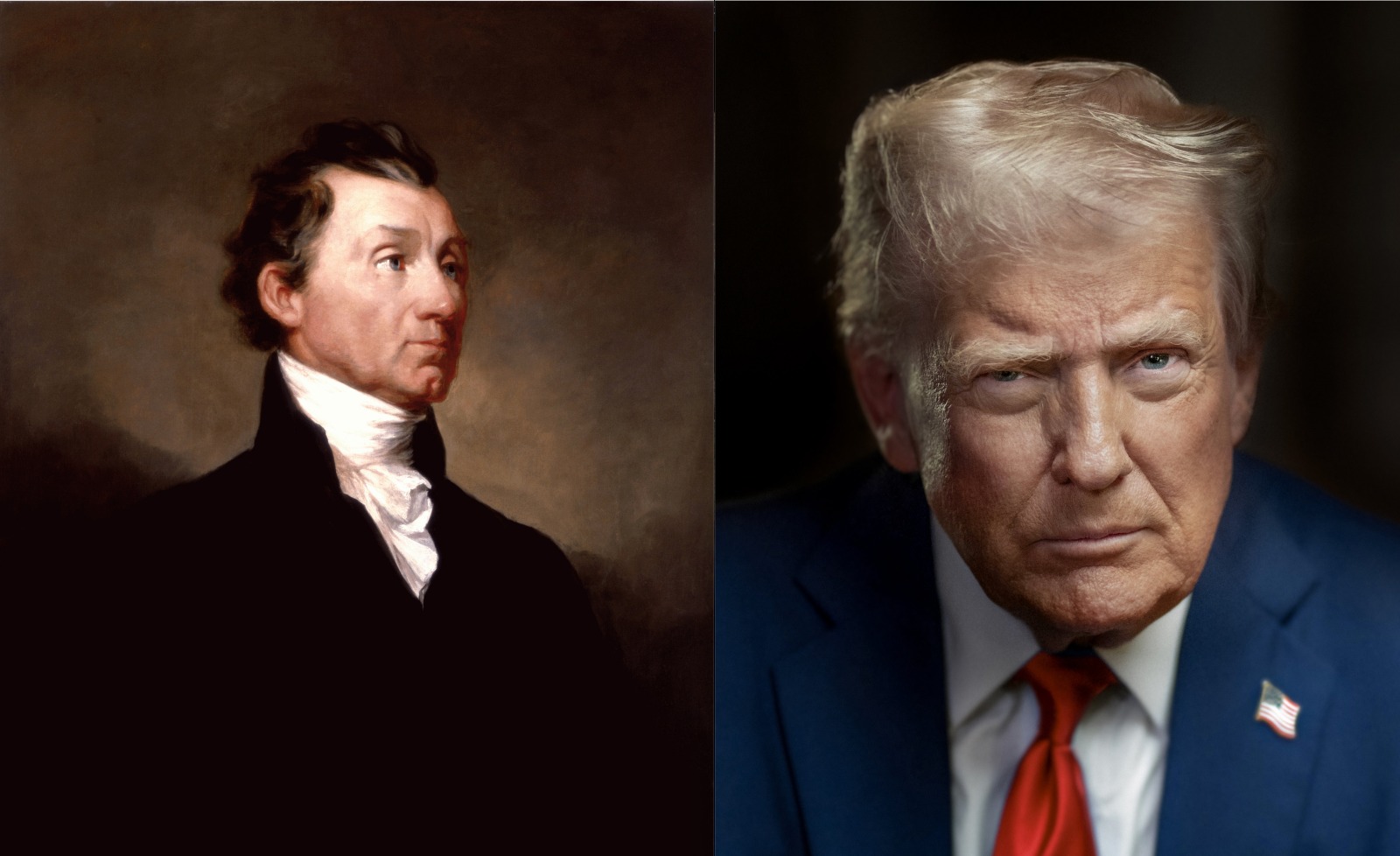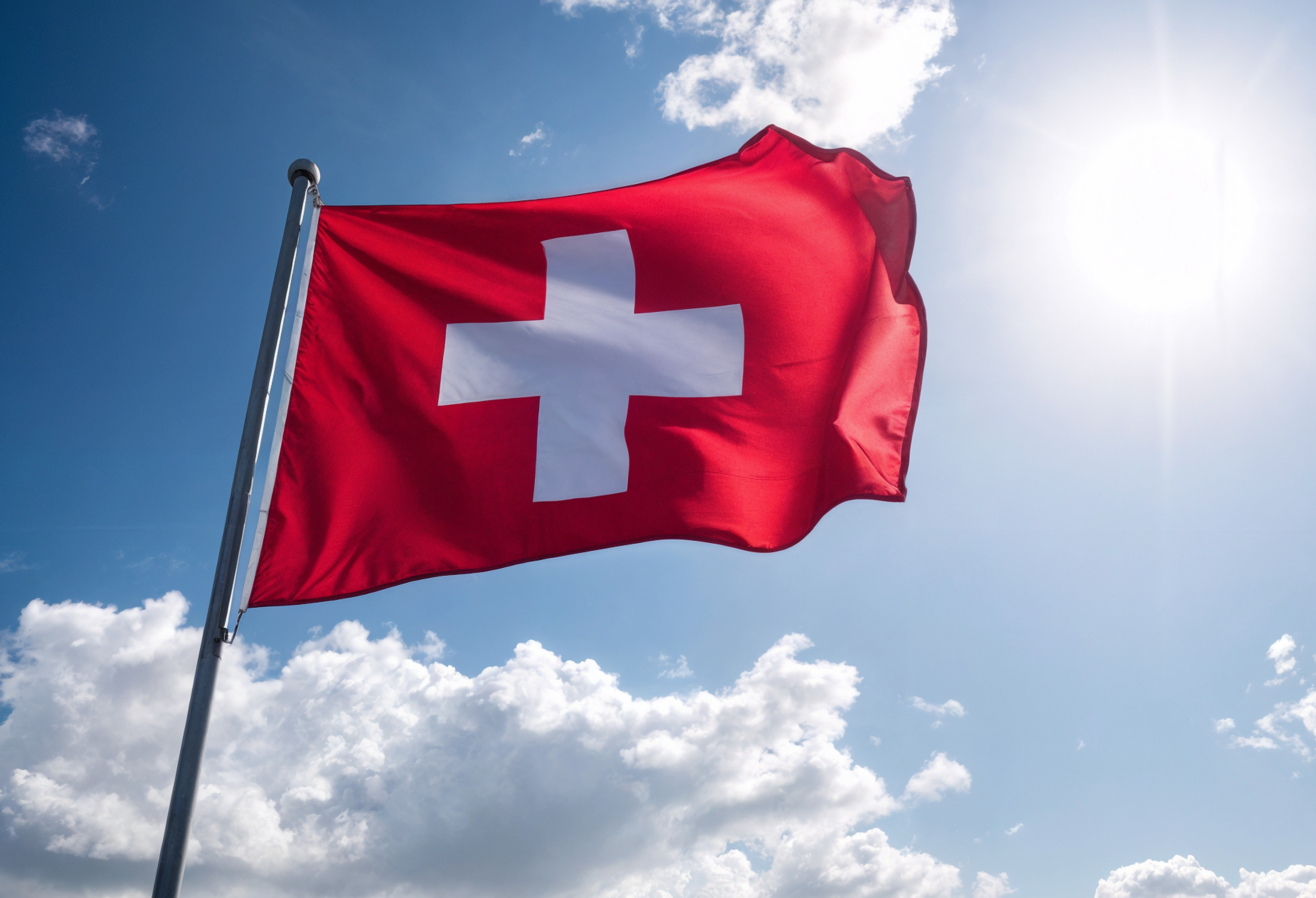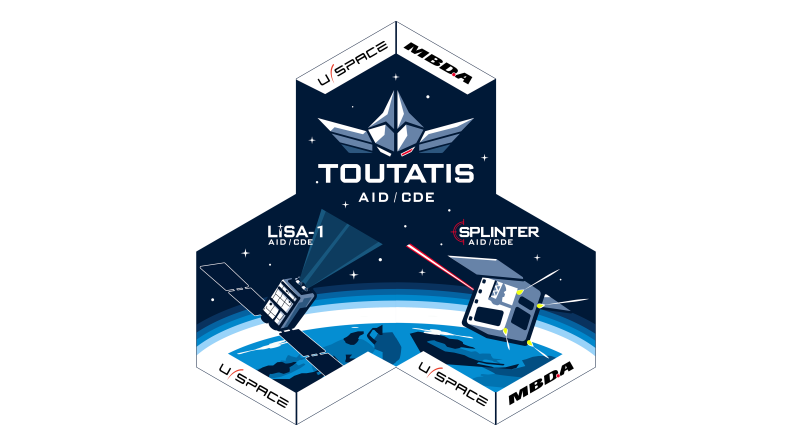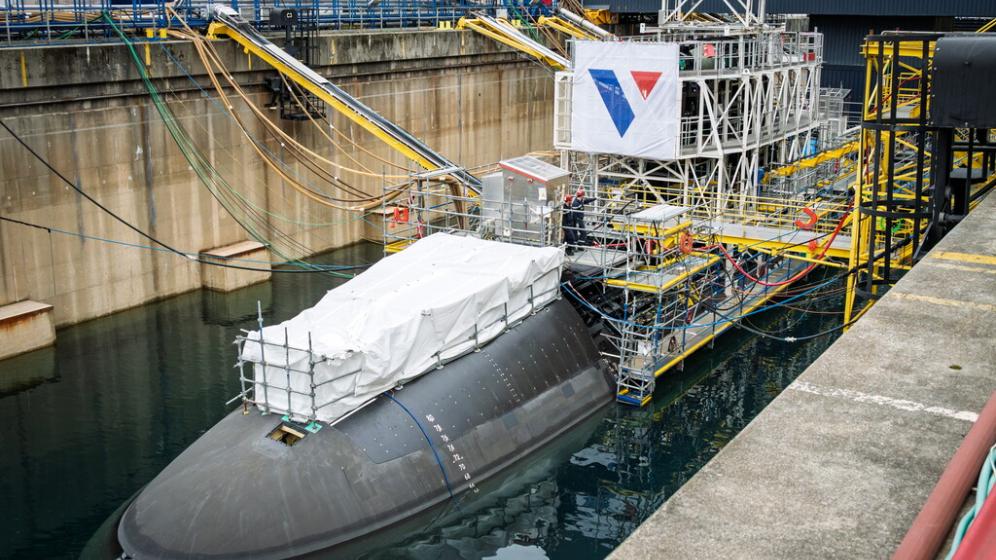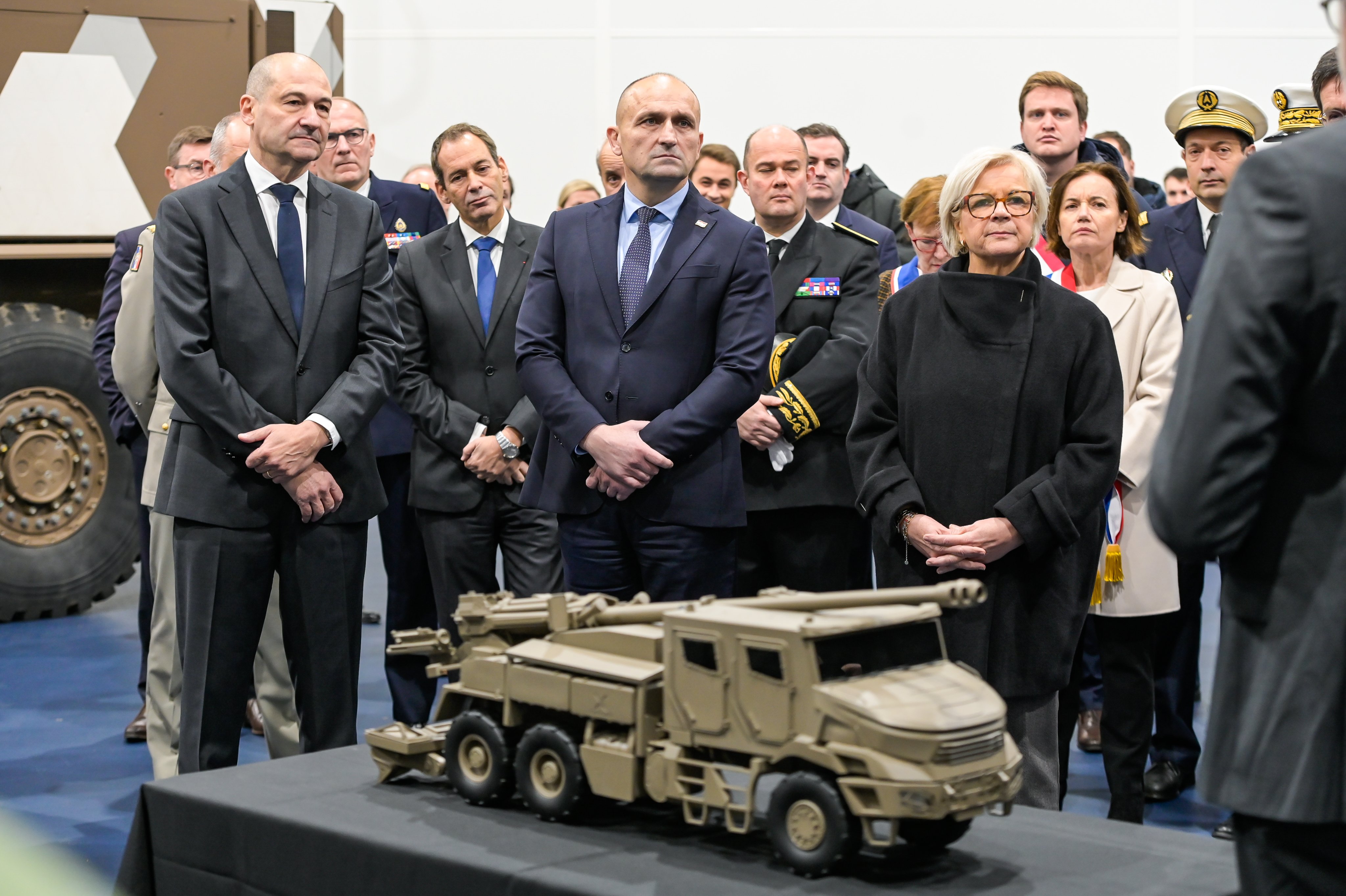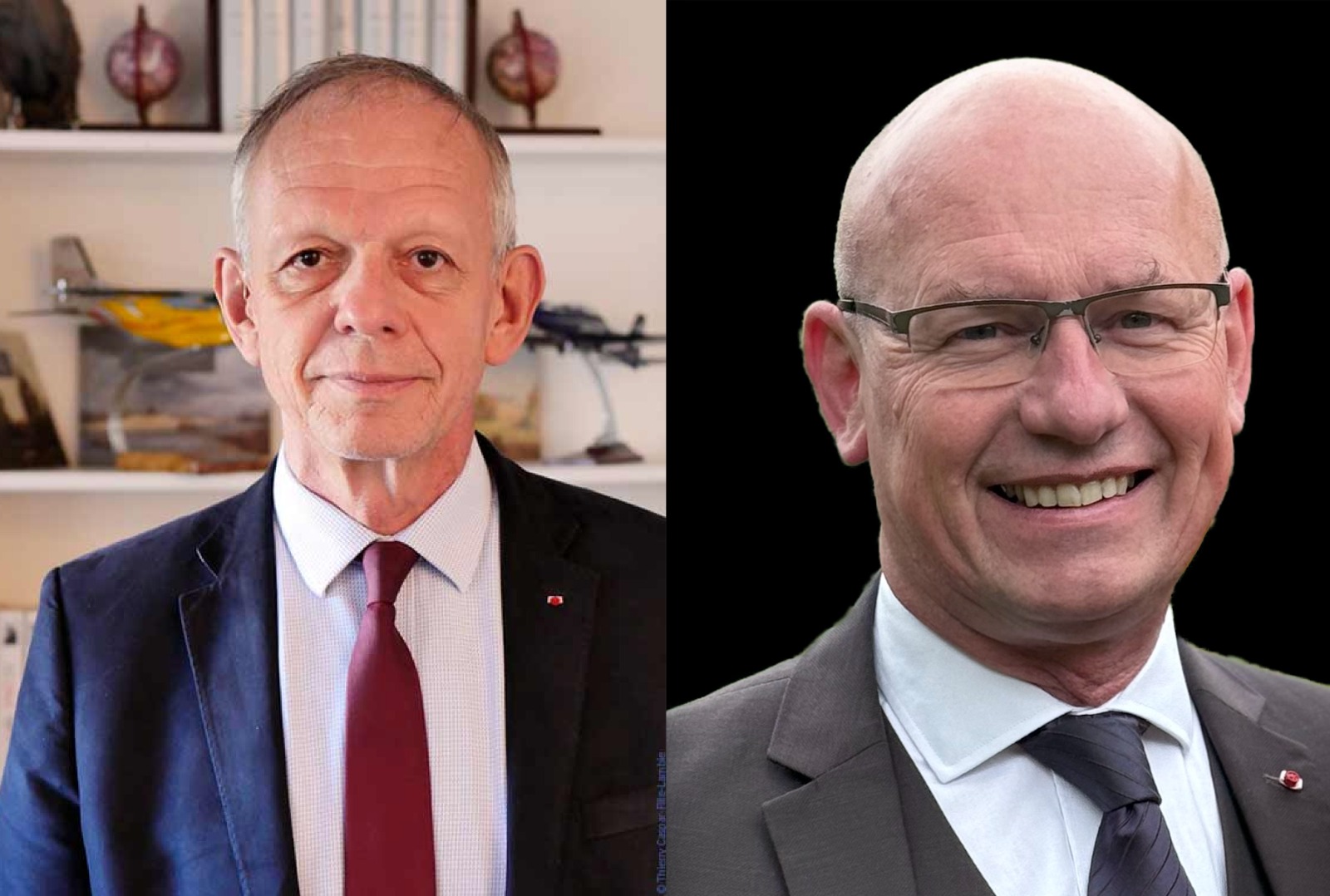Edition anglaise
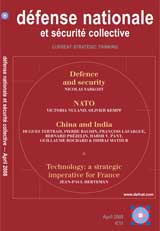
April 2008 - n° 707
France will not lower its guard - Nicolas Sarkozy
Speech by Nicolas Sarkozy, President of the French Republic, at Cherbourg on 21 March 2008 at the presentation of the SSBN Le Terrible.
African policy - Nicolas Sarkozy
Short extracts from the speech by President Nicolas Sarkozy to the Parliament of the Republic of South Africa, Cape Town, 28 February 2008 (www.info.gov.za/speeches/2008/08030311451001.htm).
Knowledge and anticipation - Philippe Boone
The new strategic function of ‘knowledge and anticipation, including intelligence’ is currently being formalised in the new White Paper; this requirement has been articulated for many years and has already been the subject of fruitful methodological research within the Ministry of Defence (MOD). Strategic anticipation involves the exploration of future strategic situations and is undertaken prior to any political or military decision-making process. It demands specific expertise and skills that amount to a new vocation. The first stage is to understand what anticipation involves; it now remains to apply this expertise to the real world of the MOD, to push for its adoption within an interdepartmental framework and to link anticipation and operational planning—to move on from conceiving possible futures to the implementation of a strategy or a decision—and in a way actually prevent crises. (The opinions expressed are his alone)
The transatlantic union - Victoria Nuland
Ambassador Victoria Nuland, the United States Permanent Representative to NATO, gave two speeches in late February, one in Paris on 22 February and the other in London three days later. On both occasions she called for a new transatlantic union, with in particular a strengthened Europe able to act independently on defence issues but also together with NATO. The two speeches have many similarities: that delivered in London is the more revolutionary, but significant extracts from the Paris address are also given here (http://nato.usmission.gov ).
The new American line: yes to an European defence identity - Olivier Kempf
There are several indications that America wants a transatlantic union. The terms of the deal have been re-shaped. Breaking with the old ‘NATO only’ position, the United States seems to be accepting the ‘Brusselist’ concept suggested by Mr Sarkozy: both NATO and an autonomous European defence identity. So a radical change is under way. Although unlikely to be visible from Bucharest, it should profoundly modify transatlantic relations in the next 15 months.
The issues at Bucharest - Pierre-Marie Dupré, Victor Fèvre, Alix Leclainche, Ricarda Wagner
The NATO summit in Bucharest in April 2008 will be mainly concerned with the issue of accessions. Their number will be limited, and the Allies will hold out encouragement to Ukraine and Georgia. On the operational side Kosovo will no longer be a major concern, and the Allies should agree on a joint strategy on Afghanistan. The issue of the anti-missile shield will remain doubly contentious, from both a transatlantic point of view and that of the future relationship with Russia. This summit appears important, but will above all serve to prepare NATO’s 60th anniversary summit in 2009.
Russia's EU strategy - Viatcheslav Avioutskii
Russia’s new strategy regarding the EU consists in weakening the 27 through specific disputes with individual member countries. The embargo on Polish meat, tensions with Estonia, the Litvinenko affair and Kosovo’s independence are used by Moscow to split the Europeans and hinder the emergence of a European foreign policy. During its EU presidency, France must work on strengthening solidarity among the 27 to work out a real common foreign policy.
China, a maritime powder keg? - Hugues Tertrais
On 29 and 30 June 2007 Panthéon-Sorbonne University (Paris-I) organised an international seminar entitled ‘China and the sea: regional security and cooperation in the Far East since 1954’. It was run by UMR-IRICE, an international research group specialising in the contemporary history of international relations, following a request by the French Navy Headquarters at CEHD (the Defence History Study Centre), as part of EPMES (defence forecasts of a politico-military, economic and social nature). It was aimed at a better understanding of the origins, conditions and implications of Chinese maritime power. Over two days researchers from differing backgrounds (mainly historians, but also political scientists, geographers and legal experts), both civil and military, exchanged experiences and ideas.
China under Hu Jintao, or, the end of timidity - Pierre Baudin, Alain Biron
The 17th Congress of the Chinese Communist Party ended on 21 October 2007. It is too soon to appreciate its true consequences, particularly for the power struggles between the ‘Shanghai Group’, who believe in growth at any price, and President Hu Jintao, defender of ‘social harmony’ and ‘scientific development’. Yet quite apart from this specific event, Chinese attitudes have changed, and in this article the author sets out to analyse the main features of this change.
The oil crisis: China, the perfect scapegoat - François Lafargue
The Western economies have been confronted with rising oil prices for the past five years. Political instability in the Middle East, social unrest in Nigeria and Hugo Chávez’s nationalisations all reinforce our dread of a shortage. This oil crisis is often presented as the consequence of the rapid industrialisation of India and China. As so often in Europe, we try to explain our own difficulties by transforming China (and to a lesser extent, India) into the perfect scapegoat; but what is the reality?
The Chinese and Indian Navies - Bernard Prézelin
Extracts concerning the Chinese and Indian Navies taken from the preface to Flottes de Combat 2008, published by Éditions Maritimes & d’Outre-Mer.
Indian's rising profile in the Indian Ocean - Harsh V. Pant
Long seen as India’s backyard, the Indian Ocean has always been at the heart of international relations. With its rise in power, China has greatly increased its presence in the region, with bases, port facilities and so on, and is expanding its navy. India is rising to the Chinese challenge by drawing closer to the United States and Japan, and in turn reinforcing its maritime presence.
India: a new eldorado for the European aerospace - Guillaume Rochard, Dhiraj Mathur
European aerospace and defence (A&D) companies see India as one of the most attractive markets. For these companies, investing and setting up there could provide a solution to some of their problems, such as producing in the dollar zone, manpower costs and the shortage of qualified people in Europe. The big prime contractors such as EADS, Safran, Thales and BAE Systems have understood this. Despite difficulties (legal, socioeconomic, etc.) that put a brake on the aspirations of subcontractors (Recaero and Machaero are exceptions), the setting up of European SMEs could help young Indian A&D companies, and several ways of helping these European SMEs are worth exploring. Apart from prime contractors and industrial groupings like Gifas, it is also in European governments’ interest to help in this. US, Russian and Israeli competitors have already set up in India, some many years ago.
‘Gendarme to the world’: a theological interpretation of the policing function - Roberto Nayberg
There are two possible ways of looking at the policing function: one emphasises repression, the other more discreet ways of preventing crime. The United States, the dominant power in the world today and guardian of order, has in recent years opted for the first. But behind an apparently technical debate there lies a subconscious representation of the modes of divine action.
Technology: a strategic imperative for France - Jean-Paul Herteman
Safran is one of today’s leading players in the aerospace, defence and security markets. Its strategic choices are based on technological expertise, including dual technologies. The technological synergies between civil and military applications, a key development factor and part of a virtuous circle, deliver considerable advantages to the State and industry alike. Underlying these synergies are the understanding and application of key technologies, which must be supported within the scope of a proactive defence industry strategy in France and across Europe.
The White Paper and national security policy - André Thiéblemont
With a confused and ambiguous nature and aim, and lacking rigorous methodology, thinking in preparation for the White Paper on defence and national security has obscured the scope and complexity of the work required to produce a comprehensive national security policy. This would, among other things, look at the phenomena that risk fuelling national disintegration, and take advantage of the armed forces’ potential for improving social and cultural cohesion. But of course to do that they need greater visibility on the national landscape.


